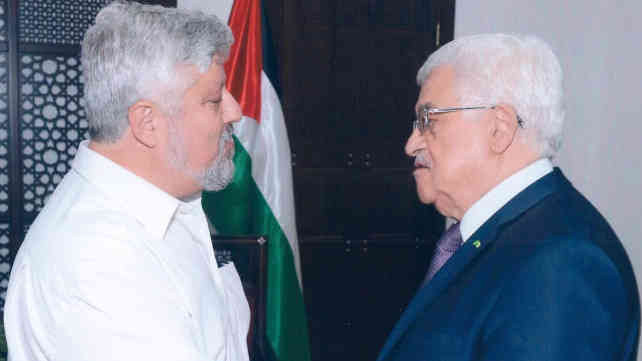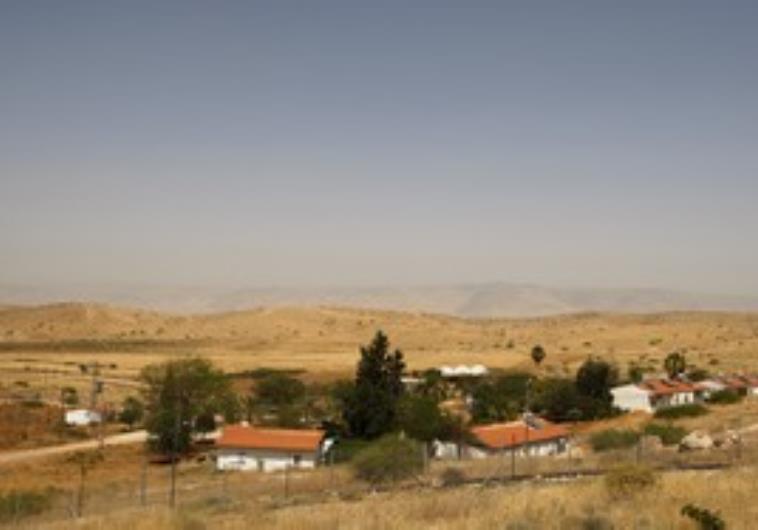On October 30, 2018, Israelis will elect new mayors and local governments. I will vote in my city, Jerusalem. This week I went to listen to a candidate for mayor of Jerusalem. He gave a short and concise bullet-point presentation of his positions and vision for the future of Jerusalem. The event took place in the Rabin Youth Hostel in Jerusalem and the room was full of Jerusalemites of all ages, mainly from Jerusalem’s few remaining secular Jewish neighborhoods.
He spoke about fighting corruption, a vision of a pluralistic Jerusalem where secular Jews and national-religious Jews are more fairly represented in the city council and budget. He talked about creating jobs for young people and stopping the trend of young Israelis leaving the city. He spoke about cleaning up Jerusalem, which is one of Israel’s dirtiest cities. He spoke about building for haredim (ultra-Orthodox) in their neighborhoods and not the current trend of building haredi education institutions away from their neighborhoods, which then requires busing them into what are generally more secular neighborhoods. The candidate spoke well and I agreed with just about everything he said. My problem in supporting this candidate stems mainly from what he did not say.
Not one word about almost 40% of the city – the Palestinians of Jerusalem. There are more than 360,000 Palestinians in Jerusalem. How can anyone talk about the future of Jerusalem, or a vision for Jerusalem, without speaking about more than one-third of the people who live there? Was he afraid to mention the Palestinians of Jerusalem out of fear that he would lose Jewish votes if he did? Very likely.
The Palestinians of Jerusalem are almost invisible to most Israeli Jews – even those who live in Jerusalem. Jerusalem is not one city – it is at least two, and for most of us probably more than two. Israeli Jewish Jerusalemites and Palestinian Jerusalemites live and operate in completely different worlds. Almost all of the Jerusalem Palestinians are not citizens of the State of Israel, they are residents of the State of Israel. Their standing as residents is based on the “Law of Entry into the State of Israel” which is really somewhat funny, because they did not enter Israel – Israel entered into their lives.
While in principle the Palestinians of Jerusalem could become citizens of Israel, in reality they cannot, nor do most of them want to. The official records on how many Palestinians in Jerusalem have become citizens of Israel are not public, nor is the number who have applied for citizenship. What is public is that less than one percent vote in the municipal elections, which they can do as residents of Israel. They cannot vote in the national elections for Knesset because they are not citizens, but they can run for office in the municipality and they can also vote, though until now they have not.
Many of us have tried to convince Palestinian Jerusalemites to participate in municipal elections. In 1993 I was part of an attempt to create a joint list of Jews and Arabs to run for the city council. We failed to get the support of Palestinians and their leadership because they reject Israel’s annexation of Jerusalem and refuse to recognize Israel’s sovereignty over Jerusalem. Palestinians could easily get a third of the seats on the city council. They could easily make ad-hoc coalitions with various groups in the city to shift large amounts of money to the most neglected parts of the city.
They pay their taxes to the city but get very little in return. There is a lack of more than 1,000 classrooms for Palestinians in Jerusalem and despite the fact that the Supreme Court ordered the government and the city council to rectify that years ago, they are still not even making a dent in what needs to be done. The irony is that the lack of classrooms drive parents to send their children to private schools not supervised by the city’s education department or by Education Ministry. Many of those unofficial schools are not teaching those children what they should be learning. Many Palestinian kids end up on the streets and easily find their way into a life of crime – and guess which neighborhoods they target (hint: they are not Palestinian).
Palestinians defiantly reject the American decision to unilaterally recognize Jerusalem as Israel’s capital. Even though they know better than most that Jerusalem is Israel’s capital, most of them want to see a Palestinian capital in east Jerusalem and almost none of them will ever recognize Israel’s control over Al Aqsa – not just the mosque but the entire Temple Mount, or as they call it Haram a-Sharif. There may be some change of attitude among Palestinians in the city, however, regarding elections.
Perhaps that is one of the reasons some Likud leaders are working so hard to remove two major Palestinian neighborhoods from Jerusalem that were annexed in 1967. Recent surveys, one conducted by the Hebrew University and by Israel Palestine Creative Regional Initiatives (IPCRI), found that some 60% of Palestinians in Jerusalem view favorably the possibility of voting in the upcoming elections. There is even some behind the scenes talk about creating a joint Jewish-Arab list once again to run in the elections. I would be glad to join such a list.
I believe that Jerusalem must never again be physically divided, but that Palestinians must have their capital in Jerusalem, alongside of the capital of the Jewish people, and must share sovereignty in Jerusalem. We must find the way to create a new reality in Jerusalem where all residents of the city share in the celebration of its diversity and share in the ownership and the sense of responsibility over all of this remarkable city.
Jerusalem must be a city where tolerance is the order of the day and a value that we live by, not something to be placed in a museum. We need a mayor in Jerusalem who sees all Jerusalemites as their constituents and seek all of their votes without being afraid to say to all that Jerusalem belongs to all of us. Jerusalem will never be a city of peace if that peace is built on walls and fences. Jerusalem must be a city where all of its residents believe that it is a privilege to live in this city and to share it will everyone else who lives here. We need a mayor worthy of Jerusalem. I don’t yet see one on the horizon – I hope that one day soon she or he will stand up.


